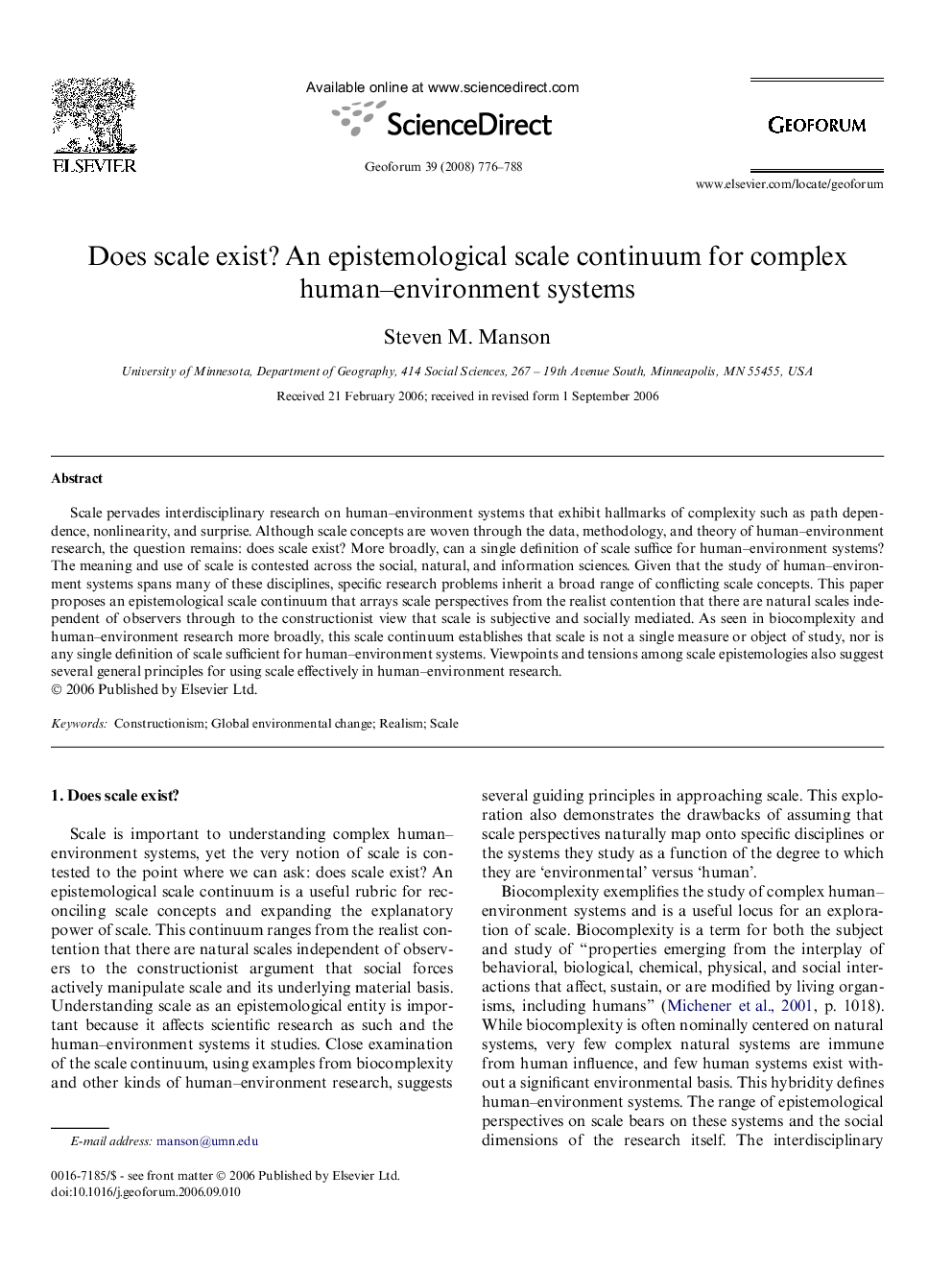| Article ID | Journal | Published Year | Pages | File Type |
|---|---|---|---|---|
| 5074781 | Geoforum | 2008 | 13 Pages |
Abstract
Scale pervades interdisciplinary research on human-environment systems that exhibit hallmarks of complexity such as path dependence, nonlinearity, and surprise. Although scale concepts are woven through the data, methodology, and theory of human-environment research, the question remains: does scale exist? More broadly, can a single definition of scale suffice for human-environment systems? The meaning and use of scale is contested across the social, natural, and information sciences. Given that the study of human-environment systems spans many of these disciplines, specific research problems inherit a broad range of conflicting scale concepts. This paper proposes an epistemological scale continuum that arrays scale perspectives from the realist contention that there are natural scales independent of observers through to the constructionist view that scale is subjective and socially mediated. As seen in biocomplexity and human-environment research more broadly, this scale continuum establishes that scale is not a single measure or object of study, nor is any single definition of scale sufficient for human-environment systems. Viewpoints and tensions among scale epistemologies also suggest several general principles for using scale effectively in human-environment research.
Related Topics
Social Sciences and Humanities
Economics, Econometrics and Finance
Economics and Econometrics
Authors
Steven M. Manson,
